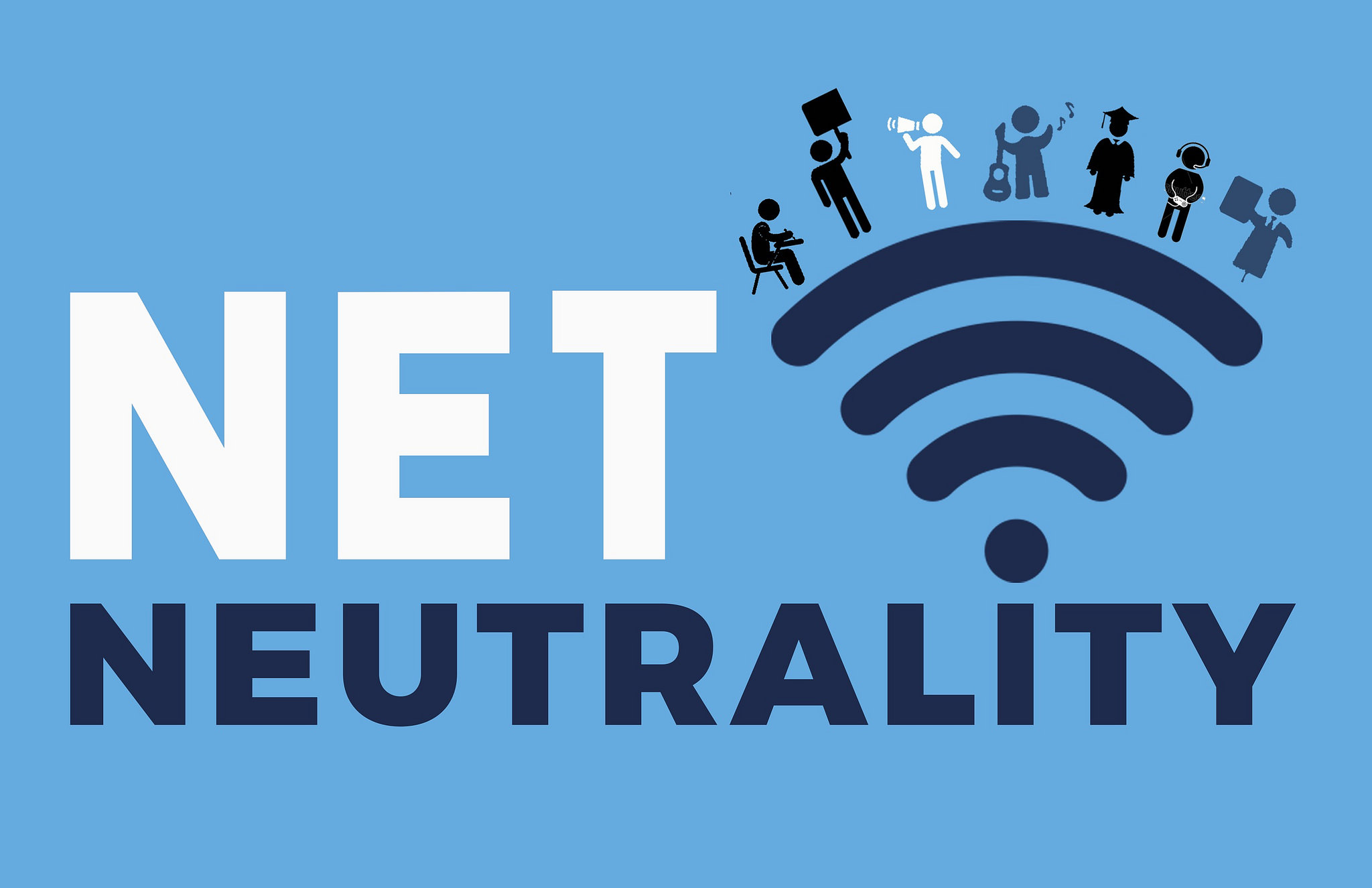 |
| https://www.citizensutilityboard.org/blog/2021/08/20/update-whats-going-on-with-net-neutrality/ |
This week, I studied the concept of net neutrality, and its impact on society. The term was first mentioned in 2003 by Columbia law professor Tim Wu, in an essay discussing how internet service providers (ISPs) at the time were preventing users from accessing things like virtual private networks (VPNs). In 2005, the Bush administration’s FCC passed the first net neutrality legislation, aiming to prevent ISPs from blocking users from accessing legal websites, but the order was struck down after being challenged by Comcast in court. A similar situation occurred after the Obama administration FCC passed another order in 2010, which was successfully challenged in the same court. The court did allow an FCC net neutrality order to stand in 2015, amidst a suit brought forth by communication firms. President Trump appointed a new, republican FCC commissioner in 2017, who threw out the 2015 net neutrality order, allowing ISPs to block or throttle content at will. Following the 2017 order, a court ruled that the FCC could not override net neutrality state laws, leaving it up to state legislatures to protect net neutrality, unless congress was to pass a federal law addressing the issue.
Net neutrality is an important, but often overlooked concept. Net neutrality is the idea that internet service providers should treat all user traffic equally. Without net neutrality, internet or broadband providers could slow down or block traffic to certain websites. For example, if Verizon had a contracted deal with Fox News, they could speed up traffic to the Fox News site and slow down traffic to other news outlets. In the early 2000s, AT&T prevented customers from setting up their own Wi-Fi routers, and in 2009, Apple was reprimanded for blocking users from making Skype calls. Without net neutrality, internet users like myself may be forced to utilize a specific ISP to access their favorite sites. The absence of net neutrality has yet to cause an issue of that severity, but it is possible under current laws. Some states, such as Washington and New York, have passed legislation to protect net neutrality, but my home state of North Carolina hasn’t.
While it is frightening to know that providers do have the ability to prioritize or penalize certain internet traffic in most states, the government could still enact laws to protect our online freedom. In the absence of a federal net neutrality mandate, state governments should work to protect internet users. As a more comprehensive solution, however, citizens should pressure the federal government to pass sweeping net neutrality legislation. Consumers who pay to access the internet through an ISP deserve to be able to access the full (legal) internet without being interrupted by traffic throttling. Providers should not be able to determine how we access the internet, based on the financial deals they have made with certain websites. The only form of governmental or provider internet traffic control I support is to prevent access to, or transmission of, illegal content like child pornography or terroristic organizations. The internet should remain a free and diverse place, and net neutrality is crucial to maintaining the internet as we know it today.
https://www.wired.com/story/guide-net-neutrality/
https://obamawhitehouse.archives.gov/net-neutrality
https://www.aclu.org/issues/free-speech/internet-speech/what-net-neutrality

No comments:
Post a Comment